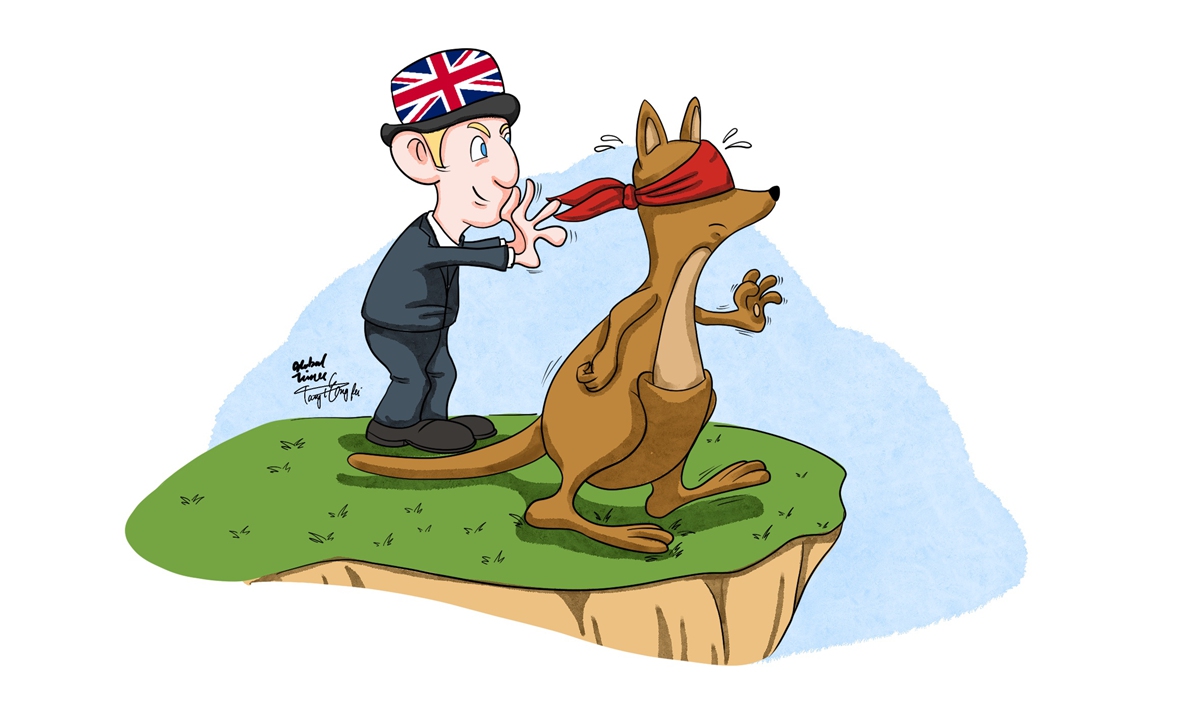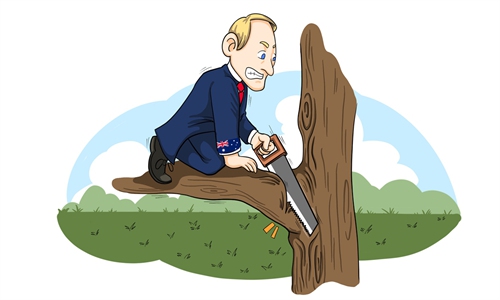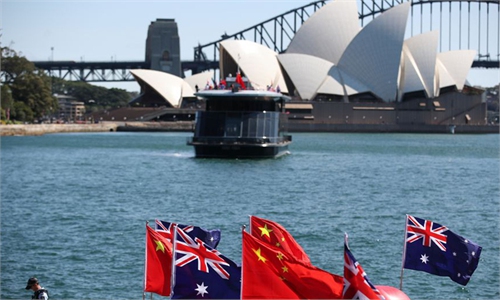COMMENTS / EXPERT ASSESSMENT
What’s behind UK’s ‘backing’ of Australia over trade?

Illustration: Tang Tengfei/GT
After the UK and Australia on Tuesday announced a bilateral free trade deal, the UK Prime Minister Boris Johnson did not forget to prepare a pep talk for his counterpart Scott Morrison, saying that the UK will "stand shoulder to shoulder" with its friend Australia and will back Canberra to keep standing against its largest trading partner China, according to media reports.The seemingly supportive attitude from Canberra's international friends has drawn a sharp contrast with repeated internal warnings raised by business leaders and local politicians in Australia that a confrontational relation between Australia and China goes against Australia's interest and the Morrison administration should stop undermining its ties with its most important trading partner.
The latest warning was issued by West Australian Premier Mark McGowan. He pointed out there are international competitors for Australia's exports to China, and "we can and should have a good relationship with our largest trading partner, China," according to media reports.
Irrespective of whether it is the UK or the US, or France which also reportedly expressed its verbal support for Australia without naming China, they did not choose to "back" Canberra for the sake of Australia's growth.
These nations support Australia in accordance with their own political interest. For instance, staying quiet may seem embarrassing for the US as a "leader" of the West, especially after Australia actively fought for the US' anti-China campaign; not to mention that other "friends" are only offering all talk and no action.
Meanwhile, there is increasing data suggests that Australia's so called "friends" have been profiting off its deteriorating relations with China. The US and Australia are both major agricultural goods exporters, and have been competing in the Chinese market.
While US Secretary of State Antony Blinken promising that Washington will not "desert Australia in its dispute with China," the US seems have been backfilling the void left by Australian exporters in China, from wine, coal, to log timber, the South China Morning Post reported.
Also, the new UK-Australia trade agreement is clearly more of a deal driven by politics, rather than generating significant economic value for either side. The UK has been seeking establishment of trade deals with others after its official Brexit. Given that the trading scale of the two sides is relatively small and there leaves not much growth potential for the two markets, such an agreement may just serve as a confidence boost for the two sides.
In comparison, China has emerged as one of the largest consumption markets in the world with the largest population of middle-class consumers. For export focused firms, China represents an irreplaceable market; and more importantly, once the market share is forfeited, it is hard to win back.
It's becoming increasingly clear that Canberra is losing by allowing continued deteriorating ties with its largest trading partner while its allies well-positioned to take advantage of new trade opportunities with China.
The Australian economy has been benefited from China's rapid growth over the recent decades; and giving up the market would not be the real intention of Australia. In spite of the previous ill-advised efforts by Morrison government to cool down relations with China, it is hoped that it could take sincere efforts to restore the mutually beneficial ties; but pinning its hope on the US or the UK is simply not the right approach.
The article was compiled based on an interview with Zhou Fangyin, director of Center for Pacific Island Countries Studies of Guangdong University of Foreign Studies. bizopinion@globaltimes.com.cn



